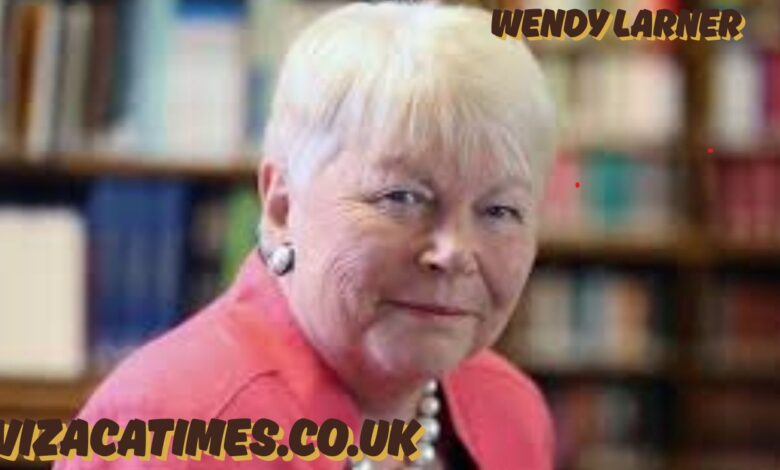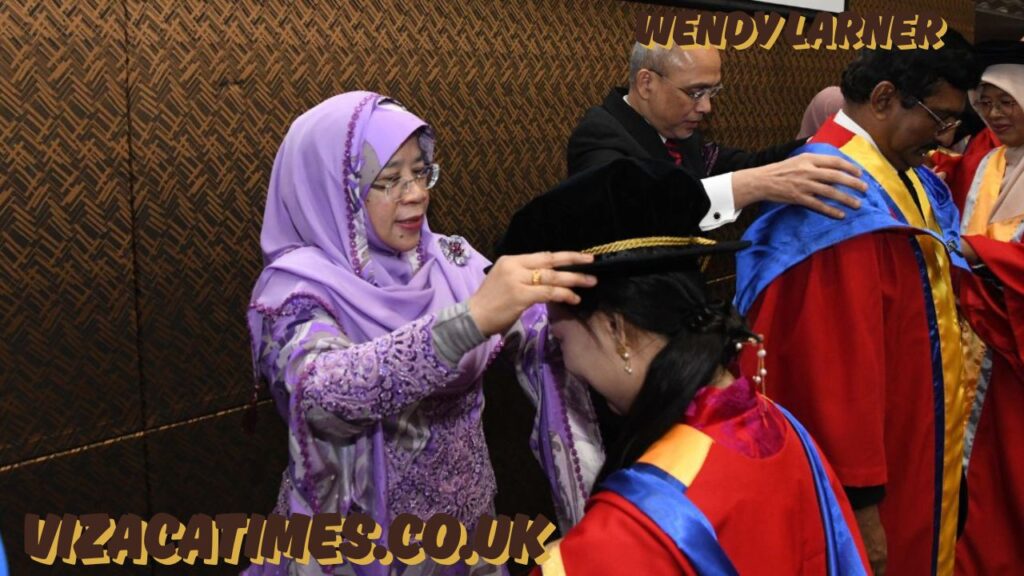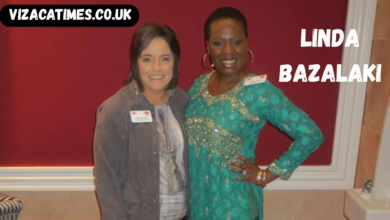Wendy Larner, ??, Academic Visionary and Global Influencer – A Deep Dive into Her Life and Legacy

Introduction: Who is Wendy Larner??
Wendy Larner is a name that resonates across the fields of geography, social sciences, and academic leadership. A globally recognized scholar and an influential voice in higher education, Wendy Larner has made her mark through groundbreaking research, institutional innovation, and a bold reimagining of the role of universities in the 21st century. Whether through her work in feminist political economy or her high-level administrative roles, Larner’s impact is both intellectual and structural, shaping how knowledge is produced and governed today.
But what makes Wendy Larner such a significant figure in both scholarly and policy-making circles? To answer that, we must explore her academic journey, her key contributions, and the leadership style that has defined her career.
Early Academic Foundations and Educational Background

Wendy Larner began her academic career in New Zealand, where she obtained her education in the social sciences. From the beginning, she demonstrated a keen interest in the intersections of gender, power, and global political economy. Her academic roots in human geography allowed her to approach social issues through a spatial and critical lens—one that became central to her future work.
Her early studies laid the foundation for a body of work that would soon challenge traditional paradigms. With a strong commitment to social justice and a deep understanding of global trends, Larner positioned herself as a leading thinker in the areas of globalization, governance, and the politics of knowledge.
Key Research Areas and Scholarly Contributions

Wendy Larner’s scholarly output has been widely respected, cited, and applied in numerous academic and policy contexts. One of her major research areas has been feminist political economy, where she has examined how neoliberal policies impact women and marginalized communities. She has consistently highlighted how globalization is not a neutral force but rather a process shaped by institutions, ideologies, and inequalities.
Another critical area of Larner’s research has been governance and neoliberalism. She has dissected how governance practices shift in the era of global markets, focusing on how non-state actors and institutions participate in managing societies. Her work has often interrogated the transformation of states, citizenship, and labor in the age of privatization and deregulation.
Furthermore, Larner’s commitment to interdisciplinary scholarship has made her a key advocate for breaking down silos in academic research. She has promoted collaborative and cross-sector knowledge production, emphasizing that societal challenges cannot be solved through narrow disciplinary lenses.
Leadership in Academia: From Scholar to Executive
Wendy Larner’s influence extends far beyond her published work. She has held several high-level positions in academia that demonstrate her capacity as a transformative leader. As a Dean of Social Sciences and Provost at prominent universities, she has overseen significant changes in academic structures, funding, and student engagement.
Her leadership style is often described as strategic, inclusive, and forward-thinking. Larner believes in the role of universities not just as centers of knowledge, but as civic institutions that must actively engage with global issues such as climate change, inequality, and digital disruption.
One of her most notable appointments was as the Vice-Chancellor of Cardiff University in the UK. In this role, Larner has not only led institutional reforms but has also served as a spokesperson for the importance of global academic collaboration and research funding. Her advocacy for equity and diversity in higher education has shaped university policies that promote inclusion and internationalization.
Awards, Honors, and Recognition
Throughout her career, Wendy Larner has received multiple honors that recognize both her scholarly achievements and leadership excellence. She is a Fellow of the Royal Society Te Apārangi in New Zealand, a prestigious distinction awarded to individuals who demonstrate exceptional contributions to knowledge.
She has also received awards for advancing women in academia and for her efforts in international academic diplomacy. These accolades are a testament to her ability to merge academic rigor with real-world impact, proving that research can be both theoretically innovative and socially meaningful.
Wendy Larner and the Global Academic Landscape
One cannot discuss Wendy Larner without addressing her broader influence on the global academic community. She is frequently invited to international conferences, research panels, and policy forums, where she offers insights into higher education, globalization, and feminist theory. Her commentary on how universities can remain relevant in a rapidly changing world is especially valued in times of uncertainty and transformation.
Larner has also been instrumental in shaping academic networks that go beyond national borders. Her work emphasizes the importance of collaboration across geographies, disciplines, and sectors—particularly in solving global crises such as pandemics, climate emergencies, and political fragmentation.
Personal Philosophy and Commitment to Change
At the heart of Wendy Larner’s work is a commitment to critical thinking and social transformation. She frequently challenges the status quo and encourages others to do the same. Her belief in the power of education as a force for good is evident in her mentorship of young scholars, her support for underrepresented voices in academia, and her drive to align institutional priorities with public values.
Larner’s leadership also embodies a post-disciplinary vision, where the boundaries between academic disciplines are blurred to better understand complex problems. She champions the co-production of knowledge with communities, governments, and industries to ensure that academic work remains responsive and actionable.
Legacy and Future Impact
Wendy Larner’s legacy is still being written, but her impact is already substantial. Whether through her academic writings or her university leadership, she has inspired generations of students, researchers, and policymakers. Her ideas about rethinking governance, promoting equity, and integrating global perspectives continue to shape conversations in and beyond academia.
As universities face growing scrutiny over their role in society, leaders like Wendy Larner are redefining what it means to be an academic in the 21st century. She stands as a model for how rigorous scholarship and visionary leadership can intersect to create lasting change.
Frequently Asked Questions (FAQs)
Q1: What is Wendy Larner best known for?
Wendy Larner is best known for her work in feminist political economy, globalization studies, and academic leadership. She is also recognized for her influence on higher education policy and her leadership roles in major universities.
Q2: What positions has Wendy Larner held?
She has served as Dean of Social Sciences, Provost, and is currently Vice-Chancellor of Cardiff University. She has also held prominent roles in academic organizations and research councils.
Q3: What are Wendy Larner’s academic contributions?
Larner has contributed to critical debates on governance, neoliberalism, and the politics of knowledge. Her interdisciplinary research has shaped how scholars understand globalization and social change.
Q4: Is Wendy Larner involved in global education reform?
Yes, she has been actively involved in global education policy and reform, advocating for inclusive, interdisciplinary, and globally connected academic practices.
Q5: How has Wendy Larner impacted women in academia?
Larner has been a strong advocate for gender equity in academia. Through mentorship, policy development, and scholarly work, she has opened pathways for women and underrepresented groups in higher education.
Conclusion: Why Wendy Larner Matters Today
In a time when universities are rethinking their missions and societies are seeking inclusive and sustainable solutions, figures like Wendy Larner offer a template for thoughtful, courageous, and impactful leadership. Her blend of intellectual rigor and practical engagement is rare—and urgently needed.
Also read : What is Steelwork, ??, Exploring the Backbone of Modern Structures



